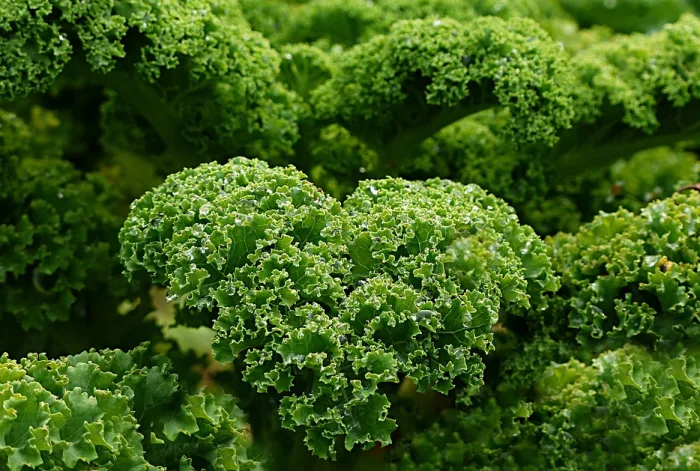
Garlic an effective repellent for tiny-yet-devastating insects
The tiny invasive insects have been causing problems for farmers.
A new study from the University of Vermont (UVM) has found that essential oils like garlic, spearmint, thyme, eucalyptus lemon, and cinnamon bark can effectively repel swede midges from kale, broccoli, and other cabbage-family crops.
The tiny invasive insects have been causing problems for farmers across the northeastern U.S. researchers say the findings are good news for organic farmers or growers interested in reducing their pesticide use.
According to the paper, the agricultural insect pests seek out familiar scents to find plant hosts. Swede midges lay their eggs on plants from the brassica family, and their larvae feed on them. Other plants in this category include cauliflower, cabbage, brussels sprouts, kohlrabi, and collards.
According to a statement by UVM, the insects "hijack" the plants the larvae feed on, causing growth deformations. Farmers can't see the extent of the damage until long after the midges are done with the plant.
In areas where there is a well-established midge population, which includes parts of Canada, the insects can destroy 100 percent of a crop yield.
"It's hard to get away from using insecticides because they're good at killing insects," lead author Chase Stratton, said in a statement, "but plants have been naturally defending against insect herbivores for millions of years. Why are we so arrogant to think we can do it better than plants?"
While essential oils have been used in the past to deter insects, senior author and UVM associate professor in the Department of Plant and Soil Science Yolanda Chen said they've usually applied using a "trial and error" process.
"People often think more aromatic plant oils, like mint, basil and lavender will repel insects, but usually there is no rhyme or reason for choosing," she added.
"It turns out that as we go along the family tree, plants that are more distantly related from the host plant are generally more repellent."
The complete paper can be found in Scientific Reports.
Sources: Scientific Reports | UVM statement










